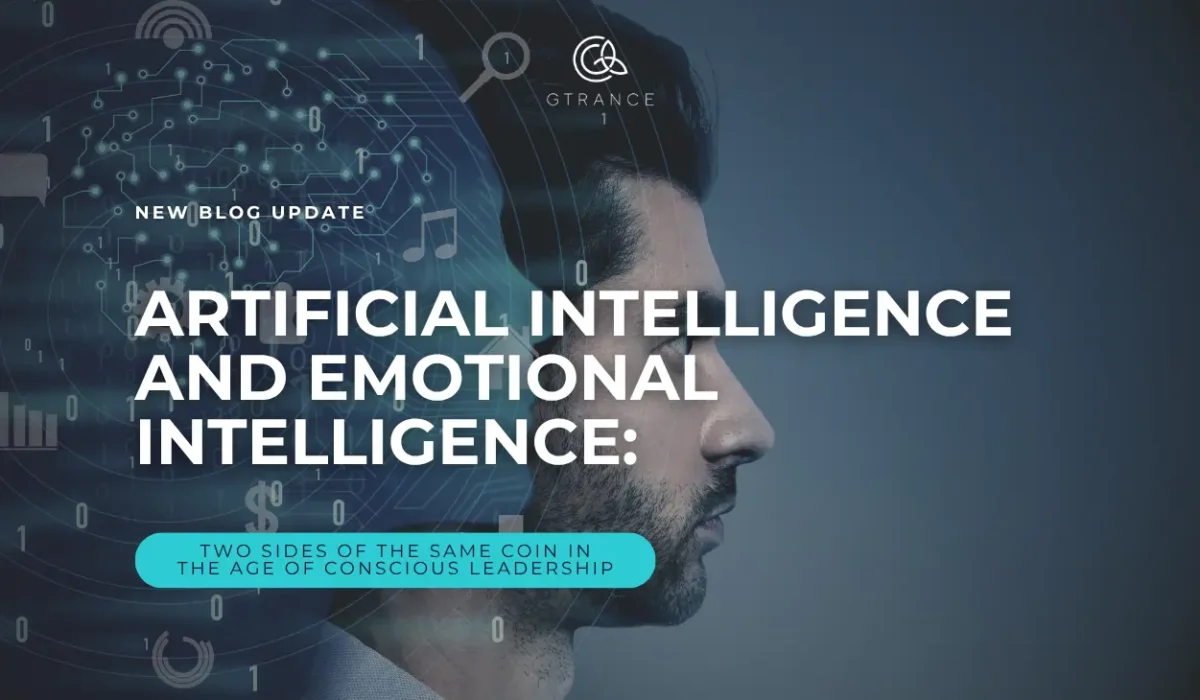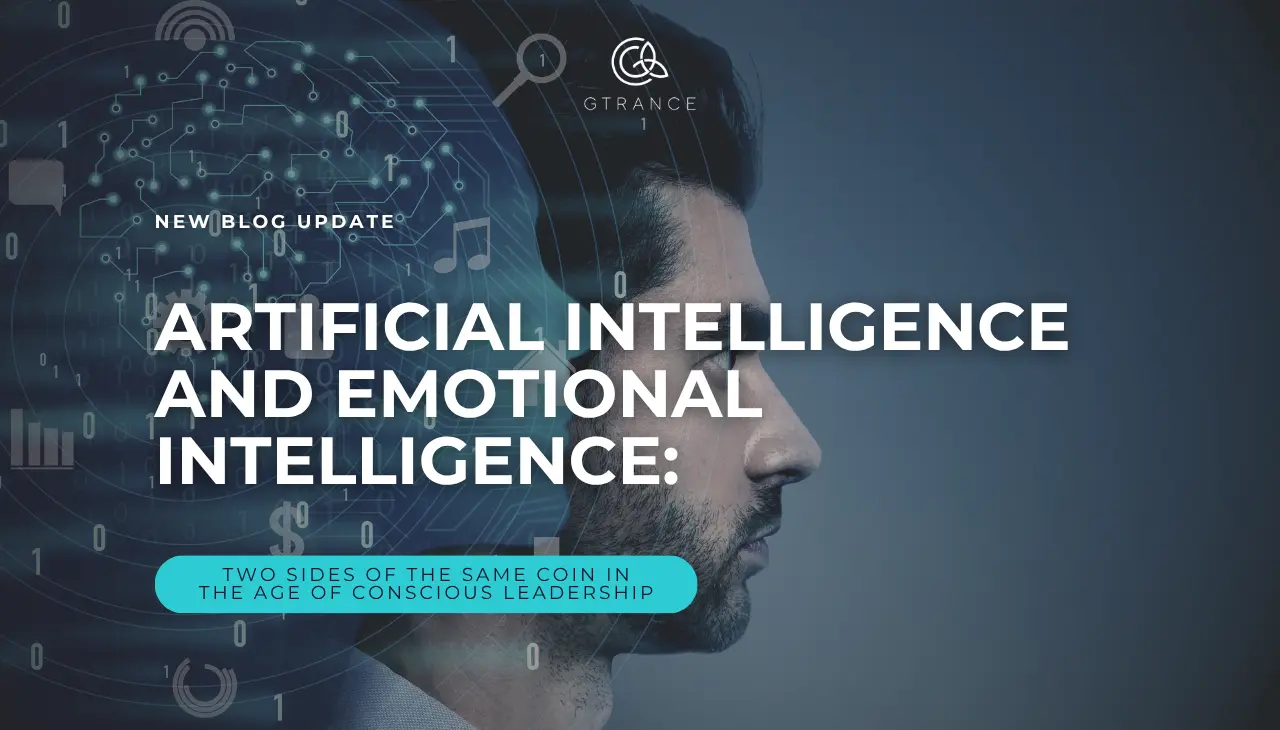
By Dr. Grace El Tayar
Master Trainer in NLP & Emotional Intelligence | Doctor of Natural Medicine | Attorney at Law | Chartered Governance Professional | MIT & Harvard Executive Education | Seasoned Board Director | Performance Enhancement & Communication Expert
Over the years, I have worn many hats; Attorney at Law, Doctor of Natural Medicine, Board Director, Emotional Intelligence and NLP Master Trainer, Chartered Governance Professional, Strategy and Innovation, and more recently, Artificial Intelligence, Digital Transformation and Leadership through Executive Education Programs at MIT and Harvard. At first glance, these domains may seem divergent. But standing where I am now, at the crossroads of human insight and technological advancement, I see something deeply interconnected: Emotional Intelligence (EI) and Artificial Intelligence (AI) are two sides of the same coin.
One is intangible, deeply human, internal, and difficult to measure. The other is rapidly evolving, quantifiable, external, and machine-driven. Yet, both are essential for leadership in today’s complex, fast-paced world. And to be blunt, we cannot build a sustainable future without mastering both.
The Inner Compass: Emotional Intelligence
Emotional Intelligence (“EI”) is not “soft.” It is not optional. It is not a buzzword that HR departments throw around during annual performance reviews. EI is the inner compass of effective leadership, it is what allows us to regulate our reactions, empathize with others, read the emotional climate of a room, and create psychological safety. In my work as a Master Trainer of Neurolinguistic Programming (NLP) and EI, I have seen firsthand how a single shift in emotional awareness can transform a team’s culture, a company’s resilience, and a leader’s ability to navigate uncertainty. However, EI is intangible. It cannot be coded or outsourced. It must be cultivated, practiced, and embodied. It is the root system of sustainable leadership, hidden from sight, but anchoring everything above ground.
The External Mirror: Artificial Intelligence
Conversely, Artificial Intelligence (“AI”) is the mirror we have constructed to process and project what we know externally. AI can analyze patterns, recognize speech, predict outcomes, and scale data processing in ways the human mind simply cannot. In my advanced coursework on “Leading the AI-Driven Organization” and “Strategy & Innovation” at MIT, I saw how AI is reshaping everything, from supply chains and finance to healthcare and boardroom decision-making.
Yet, AI has no soul. It does not dream, feel, or discern values on its own. It can simulate aspects of human behavior, but it cannot replace the nuanced wisdom of human experience. AI might help us answer “how fast” or “how much,” but it cannot answer “why” we do what we do, or whether we should.
Why Leaders Must Master Both
In boardrooms and strategy sessions, I often remind fellow directors and executives that leadership today demands ambidexterity. The modern leader must be both digitally literate and emotionally grounded. One without the other creates imbalance:
- A leader focused solely on AI risks becoming cold, detached, and transactional.
- A leader who only develops EI may lack the tools to make data-informed decisions or recognize how technology is reshaping the competitive landscape.
We need conscious, strategic, and emotionally attuned leaders who understand that technology is not a threat to humanity, but that humanity must guide how we deploy it.
Governance, Ethics, and the Human Factor
As a Chartered Governance Professional (“ACG, ICSA”) and a Certified Board Director (“MOUDARA”), I see a critical gap emerging in corporate oversight. Boards are being called to understand not just balance sheets and compliance, but also AI ethics, data governance, cybersecurity, and ESG (Environmental, Social, and Governance) principles. But equally, they must understand the emotional climate of their organizations, such as burnout, disengagement, belonging, purpose, etc.
The truth is: Strategy without empathy is dangerous. Technology without ethics is reckless.
We must ensure our organizations are not only profitable but also human-centric, inclusive, and aligned with a deeper purpose.
The Path Forward: Whole-Systems Leadership
The future belongs to those who can lead with whole systems, thinking connecting the dots between technology, humanity, health, governance, and sustainability.
As someone trained in both EI and AI, I often reflect on how systems, whether biological or digital, require balance. In the human body, we call this homeostasis. In organizations, we might call it harmony. In AI, perhaps we can call it alignment.
Whatever the term, the message is clear: We must lead not just with intelligence, but with wisdom.
In sum, we are entering a time where the next wave of innovation will not be purely technical, but deeply human. Leaders who can integrate AI with EI will not only be more effective, but they will also be more trustworthy, more adaptive, and more capable of building legacies that matter. Therefore, I leave you with this question: As a leader, CEO, C-suite, or Board Member, are you developing both sides of the coin? Are you as emotionally intelligent as you are digitally fluent?
Because the leaders of the future will NOT choose between AI or EI. They will master both.
©2025 Grace El Tayar
